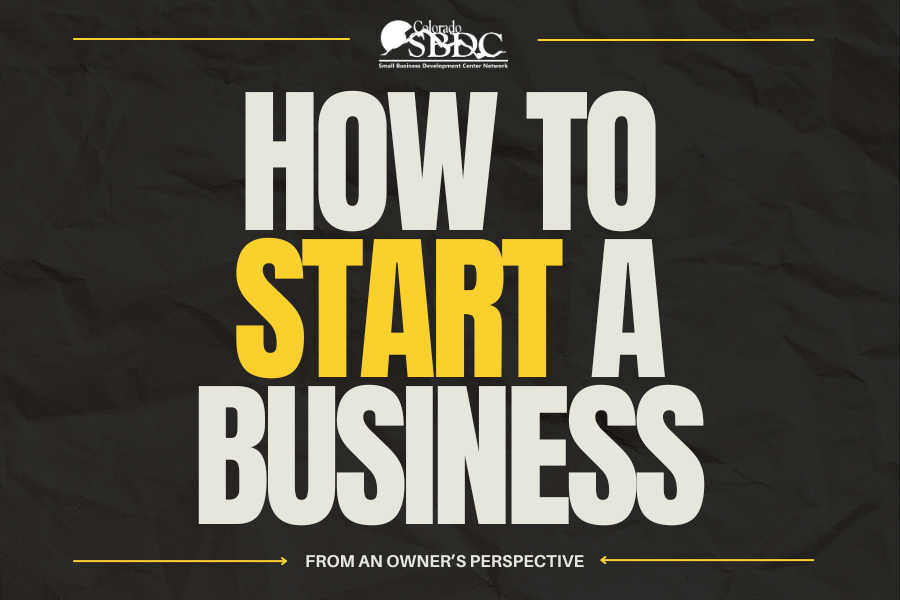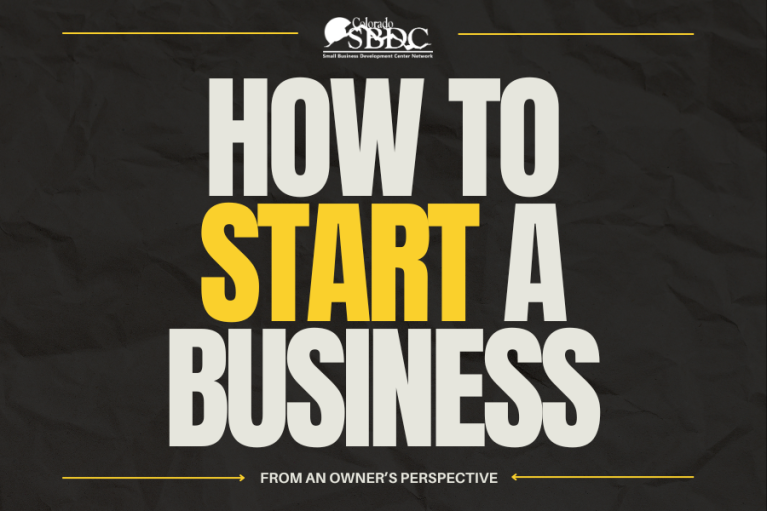
Being an entrepreneur is a brave and ambitious endeavor but what shouldn’t be overlooked is the work it takes to start up a business. The Colorado Small Business Development Center (SBDC) Network is dedicated to helping existing and new businesses grow and prosper in Colorado by providing free and confidential consulting and no- or low-cost training programs. The SBDC Network’s goal is to help new and established businesses grow and thrive across Colorado. A business that employs 500 people or less is considered small. When you’re ready to take the plunge into entrepreneurship but don’t know where to start, use this as a guide to help you get started.
We’ll talk with one of our businesses based in Aurora, CO on their journey as business owners and how the SBDC has been a valuable resource. Fortified Development is a family-owned trucking and construction company from Monica and Arthur Gilbert and their son, Davon Hawkings. Monica speaks to OEDIT to discuss how the family began their business and what it’s like being a Black-owned business in the trucking industry.
Thank you so much for taking the time Monica to talk with us about your business and your journey. The first question is, what inspired your family to become entrepreneurs?
Gilbert: Well my husband Arthur has always been an entrepreneur. He was in real estate development and we’ve always worked together as a team. We basically wanted to take on something new so we really honed in on our business plan and everything. It’s very important to create a business plan to guide your idea, understand what your break-even point is, and ultimately what it will take to become profitable.
Why trucking? What made you all interested in this particular industry?
Gilbert: We were interested in helping those who are coming out of incarceration. It’s the most forgiving industry in reducing recidivism so that was a big part of it. The trucking industry was also a good industry to invest in. You could expect to see a return on your initial investment in four to six months.
How do you actually start a business? What are the steps?
Gilbert: That’s a really good question. First step is to understand why you’re doing it. If money is the core reason for starting a business, you’re going to burn out fast. We’re in this for our values. That’s what pushes us. Step two would be to focus on identifying potential competitors. Now that you know what you’re doing, you need to spend time identifying those who do what you do or something similar.
Having a competitive advantage is key in differentiating businesses. If there are 4 Italian restaurants on one street, it would be very difficult for all of them to succeed if they're all serving the exact same thing. Italian cuisine is very broad so one restaurant could focus on Italian seafood, while another could focus on pasta, etc. The key is to understand all of the competitors and make sure your business has a distinguishable difference.
For step three, this is where you would start working on that business plan. This is where you would determine what the structure of your business will be such as an LLC, corporation, partnership, etc. The SBDC came in handy, they provide great guidance on this. LLC’s are great because it protects a small business, and provides leverage from a tax perspective. Each business owner has to research which business structure would work best for them. Once the business plan is complete then you pursue an Employee Identification Number (EIN). This is basically a social security number for your business. From here you will need to actually register your business with the Secretary of State and pursue the credentials needed to run your business.
Once you have the structure of the business set up, then you can start determining how to fund the business and understand your financial needs. You’ll then need to open your bank account which will require all of the information you spent time setting up as part of the structure. From there you’ll determine all of the systems you’ll need such as Quickbooks and others. Finally, marketing is what is needed to tell people you exist and you’re ready for business. We started as a trucking company so we joined different trucking and construction company memberships which allowed us to network. We were connected to the Black Chamber of Commerce. The networking piece is essential in success.
When did you get your first client?
Gilbert: We started doing over the road trucking and then expanded into the construction side of things. It took us about a year to gain clients in that space. It’s all about relationship building.
Could you speak about some of the challenges you’ve all faced as entrepreneurs?
Gilbert: For us I would say it’s been finding mentors and sponsors. Access to capital is an obvious challenge due to the nature of this industry. This is an intense industry, 87% of Americans rely on the trucking industry. There is bias that we face as a Black and women-owned business. A strong network of supporters, mentors, and others can really help with navigating these waters. Relationships are key in our industry.
Do you recommend future entrepreneurs utilize the SBDC?
Gilbert: Absolutely! The SBDC is always available, they were extremely helpful in the beginning when we were getting started. They pushed us to make sure the business plan was sound and connected us to training and programs to make sure we were ready for business.
Andrea Chichizola is the Small Business Navigator with the SBDC. She is the first point of contact for entrepreneurs and small business owners in Colorado.
Chichizola: We at the SBDC offer support and information for entrepreneurs to make the right call for their businesses. What’s great about working with the SBDC is that as a state government agency, we have connections with all of the state agencies. Business owners can lean on us to guide them on where and how to register their businesses, set up the business for tax purposes with the Department of Revenue, pursue the necessary licensing, permits, and others with the Department of Regulatory Agencies. We’re a free resource that can help entrepreneurs navigate the journey of starting a business.
To learn more about our small business environment and how we support our entrepreneurs, visit the SBDC website at https://sbdc.colorado.gov/
